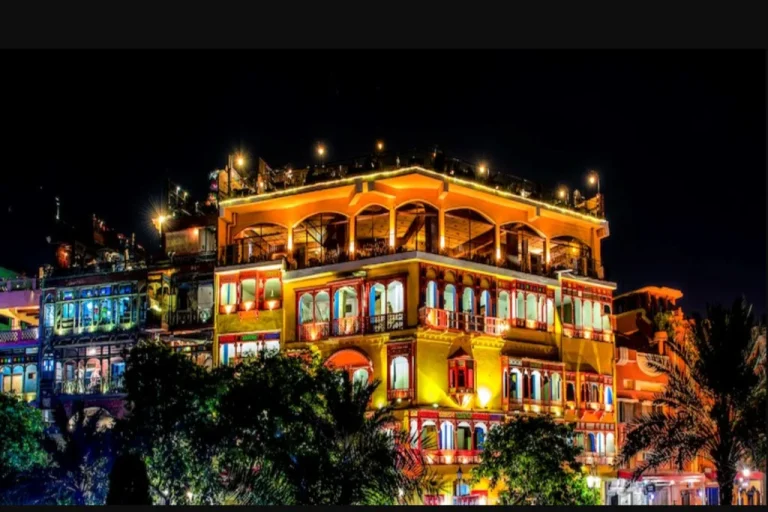The entrepreneurial environment in Pakistan is as multi-cultural as the culture of Pakistan. Every big metropolis in the country, with all its traffic and noise, Karachi, and the quietness of the hills near Islamabad, is a wonderful mix of infrastructure, talent and market potential. When it comes to start-ups trying to find a place to call home there are a couple of hubs worth considering. We have highlighted the top five cities, their significance, and what the entrepreneur can anticipate when establishing their establishment below.
Karachi: The Business pulse
Karachi is the metropolis of Pakistan and the powerhouse of their economy. The Port of Karachi stands as the key entrance point in imports and exports to the country and the city is home to the largest financial institutions and industrial parks in the country and a vibrant informal sector.
Why start here?
Access to Finance: Most of the banks, venture capital firms, and micro-finance institutions are found in the city.
Talent Pool: Universities like the NED and University of Karachi have been able to create a continuous supply of engineers, business graduates and IT professionals.
Market Size: Karachi has a population exceeding 15 million and provides a huge domestic market and a platform to national expansion.
Potential obstacles to overcome: Infrastructure bottlenecks and regulatory red tape can be difficult to overcome, and the sheer size of the opportunities can substitute these impediments.
Lahore: The Cultural & Tech Hub
The cultural capital of Pakistan, Lahore, is fast becoming a tech and creative industry hub. The juxtaposition of the old and the new make the city a center of a thriving start-up culture.
Why start here?
Creative Economy: Local talent and community help start-ups to succeed in film, music and design.
Tech Parks: The Lahore Tech City and Hub-10 include co-working spaces, incubation, and seed funding.
Government Support: Punjab government has also presented incentives to tech companies such as tax breaks and R&D grants.
What to watch out for?
There is intense rivalry particularly in the media and in the digital arena. There has to be a well defined niche and good IP protection strategy.
Islamabad and Rawalpindi: The Policy and Innovation Corridor
The capital is an area that has a political influence, and it has an expanding technology industry. Close location to federal ministries is a special benefit to businesses in e-government, defense, and data analytics.
Why start here?
Regulatory Ease: The Islamabad Economic Zone (IEZ) has a simplified licensing and tax incentives.
Talent and Connectivity: Universities such as the National University of Sciences and Technology (NUST) provide graduates of high quality and the city also has a well-planned infrastructure that facilitates easy logistics.
Innovation Ecosystem: Tech City and Pakistan Institute of Development Economics are incubators that promote innovation via mentorship and investment.
Considerations: Costs of living and office space are relatively expensive with long run advantage of proximity to policymakers and multinational corporations able to offset such costs.
Faisalabad: The Agro-Tech and powerhouse Textile
The textile mills and agricultural foundation of Faisalabad, often called the Manchester of Pakistan, has fertile grounds to manufacture and develop agri-tech start-ups.
Why start here?
Industrial Infrastructure: The city has a textile cluster which helps in supplying texts in denim, cotton and synthetic fabrics.
Rural Market Access: Agritech solutions have a captive market in rural areas that are near provincial economies.
Government Incentives/ Tax breaks of tech parks, industrial units are provided by the Faisalabad Development Authority.
Potential Pitfalls: Sustainable growth and environmental compliance Rapid industrial development may put pressure on local resources; sustainable practices and environmental compliance is becoming obligatory.
Peshawar: The New Frontier
The strategic positioning of Peshawar close to the Afghan border is making it a cross-border and domestic nexus of logistics and e-commerce.
Why start here?
Logistics Hub: The connectivity of the city to the China 2-Pakistan Economic Corridor ( CPEC ) paves the path to supply chain management start ups.
Reduced Real estate Prices: The costs of office and housing are substantially lower and enable founders to invest more in product development.
Availability of Talent: University of Peshawar and local technical institutes produce a new generation of software engineers and software developers.
Major Problems: Political instability and infrastructure issues may be dangerous; they need to address it with the help of strong risk-management strategies and partnering with local companies.
Making the Choice
In choosing a base, entrepreneurs ought to consider:
1. Industry Alignment: Does the city have a favorable ecosystem of your vertical?
2. Access to Capital: Do financial institutions and venture capitals operate in the area?
3. Cost Structure: Ratio of operating cost to projected revenue stream.
4. Regulatory Climate: How easy is it to register a business, tax incentives, and intellectual-property protection.
To sum up, the start-up scene in Pakistan is no longer a one-city phenomenon. Rather, a network of regional centers, each having its advantages, helps the entrepreneur flexibility to select a home that suits them and their vision well, as well as their operational requirements. And whether you are a tech visionary in Lahore, a textile innovator in Faisalabad, or a logistics disruptor in Peshawar the entrepreneurial spirit is alive and well throughout the country.







